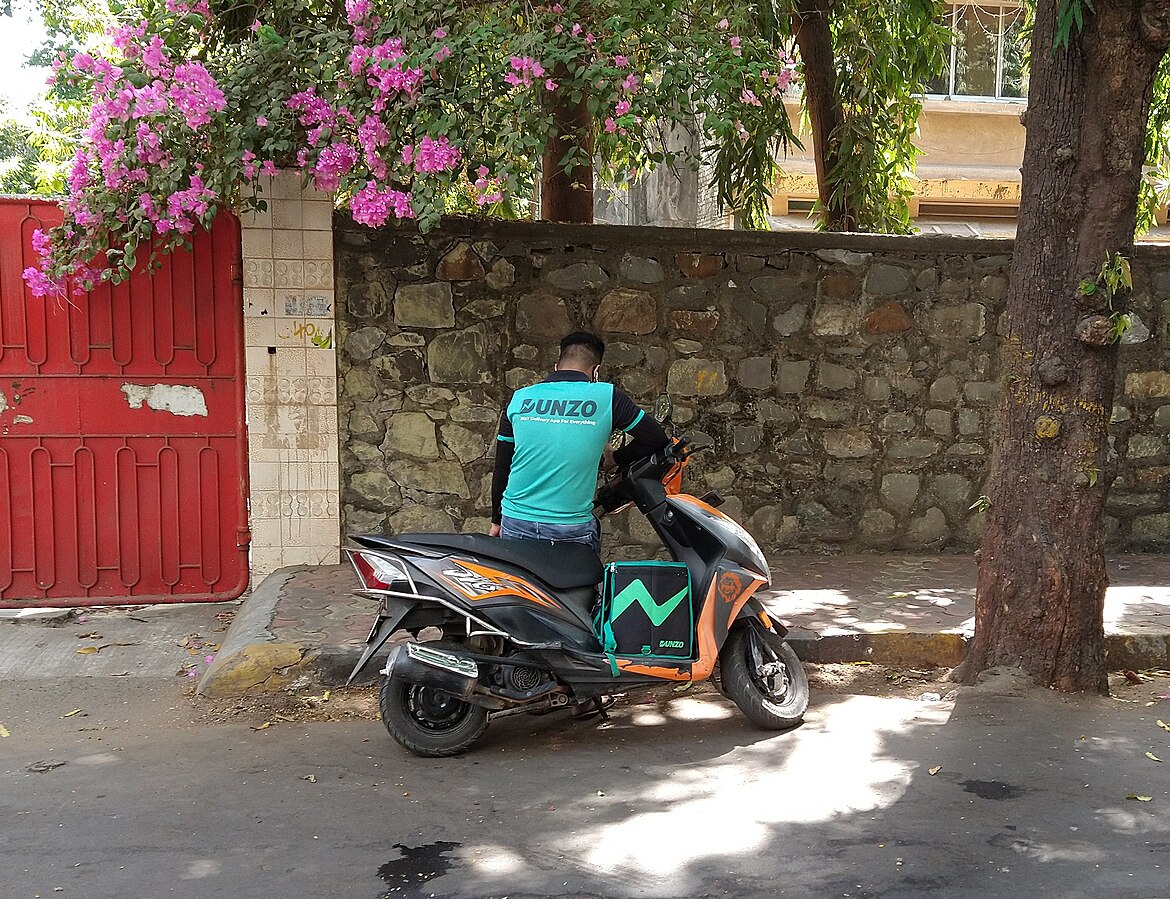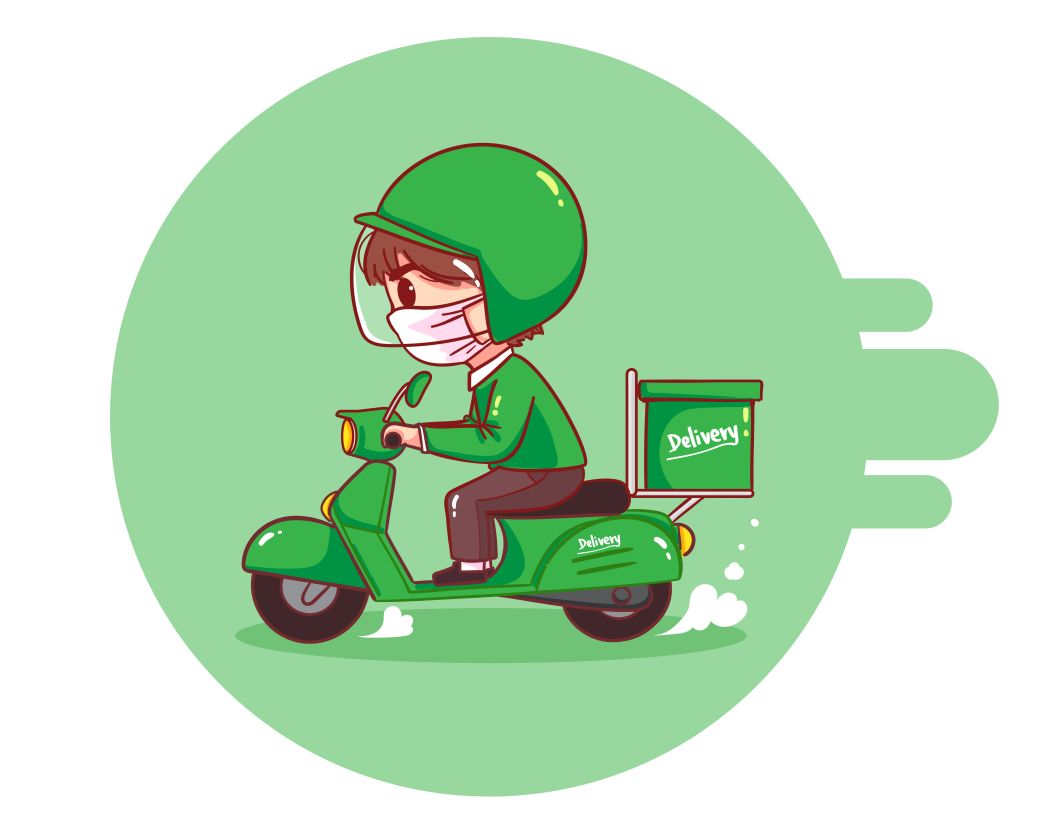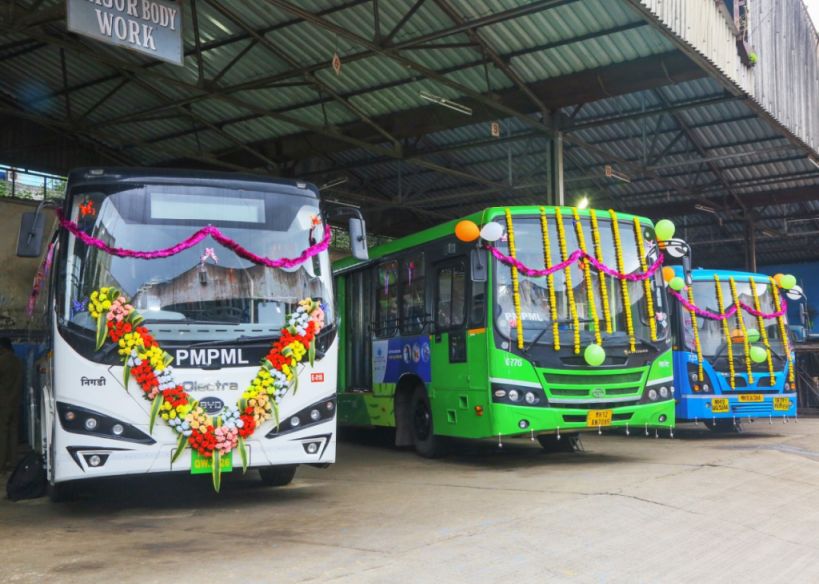The last 14 months have been quite a strain on all of us with the pandemic and the consequential lockdown(s). With many places still under varying lockdown and lockdown-like situations, getting things to run a household is tough.
I was introduced to the concept of hyper-local delivery services in early 2018 when a start-up firm moved into the building where our office was located in Bangalore. Often, during coffee breaks we’d all gather on the terrace and talk about many things in general and on one such occasion, a co-founder of the firm explained the concept to me. The start-up eventually moved their offices elsewhere but has today become a well-known name in Bangalore – Telyport.
Shortly thereafter, I was introduced to an app called Dunzo. It had become popular and had just received $128 million in funding and that included Google – a first in India. Dunzo soon became a mainstay among a lot us and was used for almost everything – from ordering liquor and cigarettes to sending keys home to ordering medicine. I was once visiting a friend who asked me to purchase something on my way and since there was a lot of traffic (Bangalore and its incessant drizzle), I ordered it on Dunzo. It reached before I did.
However, it was during the pandemic when these services began to shine. Having spent a significant amount of time during the pandemic and lockdown in both Mumbai and Bengaluru and having spent a little time in Chennai, I can’t imagine how life would be without these platforms. Every other day, I’d be down at the gate, waiting for someone from Dunzo, Swiggy or WeFast, either collecting something or sending something. From medicines, a pulse oximeter, beverages, snacks, legal documents to a cake, I’ve made full use of hyper-local services.

In order to understand how the situation was for these delivery agents, I did what I’ve done with cab drivers, auto drivers and bike taxi drivers in the past – strike up a conversation whenever possible. I also spoke to a few people who work at service providers either in tech or operations.
The first thing that stood out was a complete lack of clarity from various government agencies – federal, state and civic – on restrictions and exceptions. Few cities had a system where people engaged in essential services could apply for an e-pass – remember the Licence Raj? – and even then the guidelines have not been clear since March 2020. In the absence of concrete guidelines, there is bound to be ample scope for confusion and under the current circumstances, this is not a good sign. For instance, in the absence of proper guidelines, there is no clarity on what kind of documentation is to be carried. Many agents carry a letter issued by either the service provider, or by the establishment they are delivering for. At the other end of the spectrum, I have been told by several people that police in a few big cities have hired new recruits to enforce the lockdown. These new recruits, who neither carry a badge nor wear a uniform, often harass these agents, sometimes along with those in uniform. I have heard umpteen stories of delivery agents having the papers snatched from them and being torn up, getting beaten up by law enforcement agencies and of course, having their vehicles seized.
Now, as if this wasn’t enough, a few days ago, police in Hyderabad, Telangana began stopping delivery agents associated with Swiggy, UberEats, Dunzo and Zomato, fining them ₹1,000 and then seizing their vehicles. The reason? Police claims that food delivery cannot be considered essential services!
Now, there are multiple problems I have with this incident. For starters, who decides what is essential and what is not? If food delivery is not an essential service, why was not mentioned in a government order and why were restaurants allowed to operate? Many people who do not have facilities to cook use food delivery services on a daily basis, and Hyderabad – being one of the largest information technology hubs in the country – sees many a bachelor living in a low-cost housing unit that may or may not have the facilities required to cook. This in turn begs the question – what about the customers who have paid for their order? By going after the delivery agents, customers are essentially being cheated.
Interestingly, it was Hyderabad’s representative to the Lok Sabha Asaduddin Owaisi who pointed out that the government order did include delivery services including food. He also stated that personnel should not be stopped and in the event that the government had made food delivery non-essential, the government order should be amended.
It is essential that we understand that these delivery agents are frontline workers. They have made life easier for common people by continuing to deliver goods to them while at the same time ensuring that small businesses including stores and restaurants can continue operating, all while risking their own well-being. Given the nature of the work they do, it is impossible for any agent to determine whether they are safe at any time or not. On a single delivery route between the establishment they are delivering for and their destination, there are numerous possibilities of them contracting the virus from anywhere. Unfortunately even the Ministry of Health and Family Welfare (MoHFW) doesn’t catergorise them as front line workers.
Several states have gone ahead and announced prioritised vaccination drives for journalists as frontline workers. While this is not a bad move, it should ideally only be a priority for those on ground such as field reports, camera crew and the likes, not those who sit comfortably at home and write op-eds without once stepping out.
Finding a solution to this mess is a very easy one. However, out bureaucratic setup ensures that all easy solutions are done away with and a complicated system that involves permissions from various sundry authorities gets imposed. The easiest way to solve this issue is to remove all requirements of government authorisation. For delivery agents, since they are anyway using an app-based system, a notification on their device should suffice, however since our setup prefers everything on paper, a letter from the service provider they are working for should do. Uniforms should not be mandatory as they can be problematic, as in the case when the Greater Chennai Police found a man delivering marijuana using a Zomato t-shirt.
Governments and government agencies need to stop harassing anyone who steps out during the lockdown. Often, they don’t understand a genuine requirement. Further, some external factors need to be taken care off. Alcohol can no longer be ordered in some states, notably Karnataka – thanks to a stupid High Court order – and Maharashtra – where one requires a permit to posses alcohol. Cigarettes and paan can not be ordered on Android devices but can be on iOS devices because the Google Play store guidelines do not allow purchase of tobacco items. Google Play has a lot of issues, banning items that are legal in India, but that is a tale for another day.
States should seriously consider according frontline worker status to delivery agents, populating a list from service providers and cross checking it with Aadhaar records in order to get them vaccinated on a priority basis. After all, they are keeping the economy running, keeping both agents and shopkeepers employed and ensuring that people stay at home.
The single best example of this is from a tweet that Dunzo put out in April 2020.
If your delivery agent is delayed next time, they’re probably being harassed by government agencies somewhere.
Recommended Reading: The Rise and Rise of the Hyperlocal Delivery Model by Basundhara Choudhary in the May 2021 issue of Logistics Insider. You will need to purchase a copy however. The article talks about different hyperlocal logistics providers including Paytm Mall, Jeena & Co, Shiprocket, BlowHorn, Pidge, Life Care Logistics, among others.
I’d like to thank Yatin for his inputs. I’d also like to thank Rohan Kawley, Mokshda, Aishwarya and Esha for their encouragement.
If you have any feedback, please do leave it in the comments section below.
Since the pandemic is ongoing, please don’t step out without taking proper precautions including a mask and hand sanitizer.
Featured Image: Food delivery man riding motorcycles by mamewmy on Freepik.
![]()


